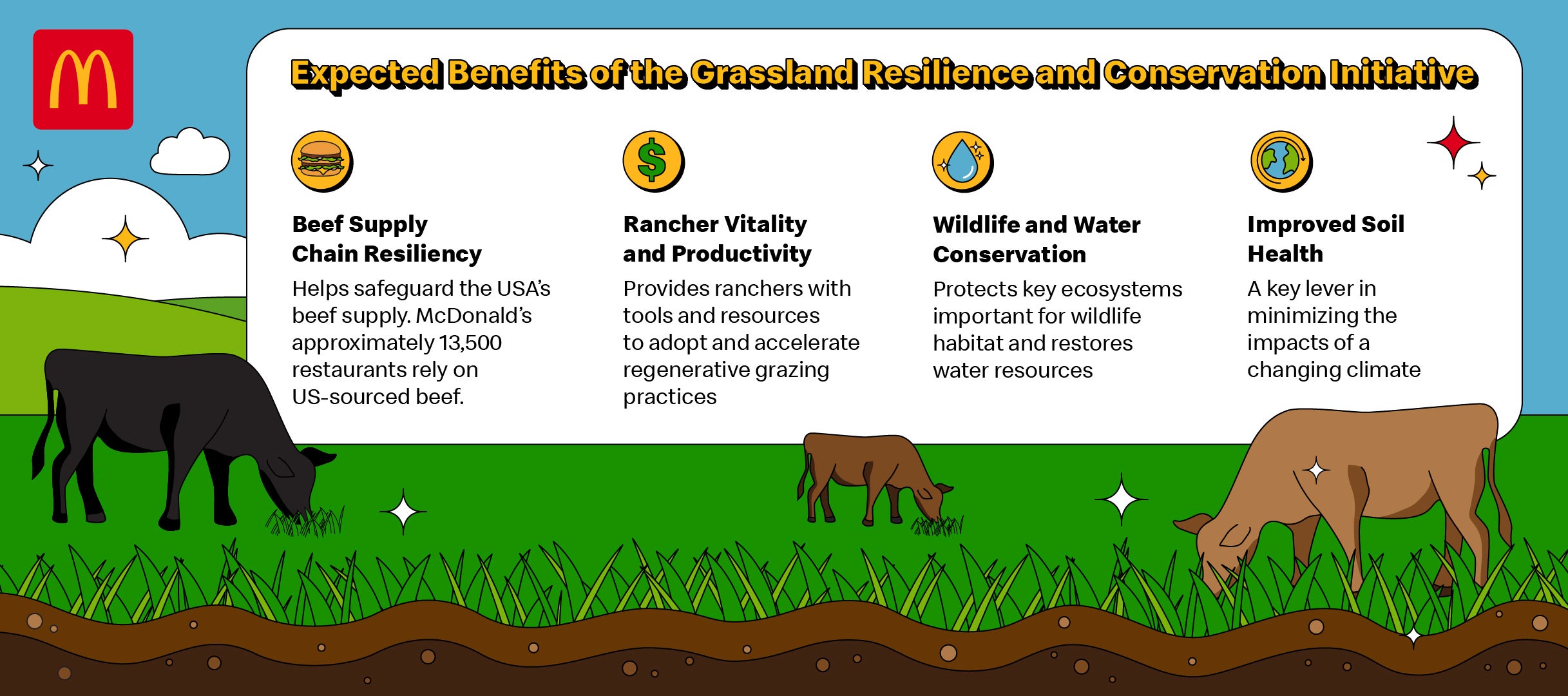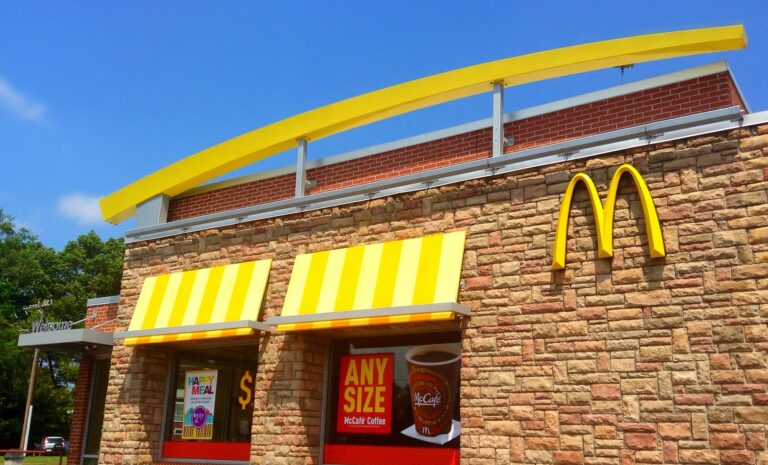McDonald’s, which sells nearly 2.4 billion burgers annually, is joining a nationwide initiative to promote and accelerate regenerative grazing practices, habitat restoration, water and wildlife conservation on cattle ranches spanning 4 million acres across up to 38 states.
The fast-food chain is pledging $200 million over the next seven years, marking this as its largest investment in “regenerative agriculture” ever through the Grassland Resilience and Conservation Initiative, which is being done in conjunction with the National Fish and Wildlife Foundation, the U.S. Department of Agriculture’s Natural Resources Conservation Service, and some of McDonald’s U.S. suppliers.
Through this initiative, McDonald’s says ranchers will gain access to tools and resources that help:
- Improve grazing land management
- Protect and restore grasslands and other natural ecosystems
- Help safeguard water
- Upgrade ranch infrastructure
This is actually more specific than many companies are when it comes to “regenerative” agriculture — an undefined term that is generally understood to mean helping improve soil health and environmental sustainability through things like grazing management, cover cropping, and no-till practices. Other brands in the past have admitted to us that they don’t really know what “regenerative” is, instead saying things like the companies have a “fluid definition” of the term, while generally associating it with more carbon in the soil and better soil health.
The term has a history of mixed reactions in agriculture depending on how it is presented and by whom.
McDonald’s said it believes that its initiative will help boost its U.S. supply chain resilience, including by providing participating ranchers economic returns such as incentive payments. Suppliers — including Cargill, Golden State Foods, Lopez Foods, OSI, and The Coca-Cola Company — are pledging funds to National Fish and Wildlife Foundation alongside McDonald’s.

“As a brand that serves more than 90 percent of Americans every year, we recognize the responsibility we have to help safeguard our food systems for long-term vitality,” said Cesar Piña, Senior Vice President and Chief Supply Chain Officer, North America. “Through our support of this initiative, McDonald’s USA is demonstrating the power of partnership between the public and private sectors and that feeding the population and stewarding our natural resources can coexist.”
The NFWF intends to independently award competitive grants to organizations that will assist participating ranchers in adopting practices that advance wildlife conservation and regenerative agriculture. The organization will identify impactful landscape-scale projects that will generate the greatest possible benefits to both wildlife populations and the productivity of vital U.S. ranch lands.
The first round of competitive grant-making will culminate in the announcement of awards, expected in January 2026.
“The benefits of grassland conservation are far-reaching,” said Jeff Trandahl, Executive Director and Chief Executive Officer at NFWF. “When cattle are managed to optimize multiple ecological and economic values, the land holds more water, grows better grass and supports more wildlife. Conservation practices voluntarily adopted by ranchers can improve the productivity of grasslands, increase ranching profitability and strengthen the vitality of rural communities across the United States.”
The post McDonald’s makes $200 million long-term pledge to ‘regenerative’ livestock practices appeared first on AGDAILY.


:max_bytes(150000):strip_icc()/Markets-3-Corn-up-3-19bdbeee0041452db8bce0a0f1c8b883.jpeg)

:max_bytes(150000):strip_icc()/28533ripesoybeans_soybeans-01d6026d90324818a2c9daf57e26b0cd.jpg)




:max_bytes(150000):strip_icc()/WinterWheat_December_alternative_seed_crops-a2b0b12da4c04eb282dff7e87688e815.jpg)

:max_bytes(150000):strip_icc()/stockyard-Dodge-City-2048x1536-38bcd3b2f08648cfa8aa180ac360fd5c.jpg)